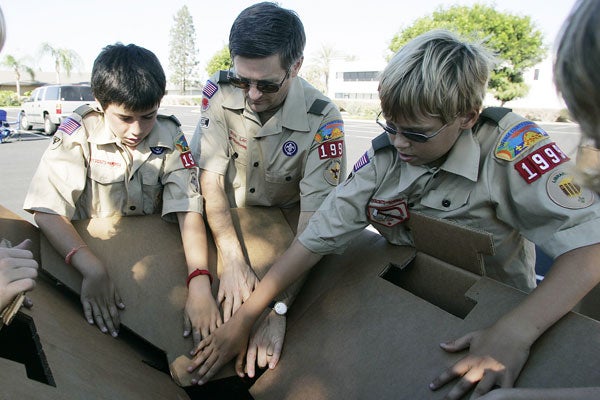Boy Scouts of America: The Badge of Intolerance?
Andrew T. Walker / Thomas Messner /
Recent events involving the Boy Scouts of America have once again raised concerns about attempts to shove people and groups with traditional viewpoints on issues such as marriage, family, and sexuality out of the public square.
As recently as July 2012, the Boy Scouts reaffirmed its long-standing membership policy regarding open homosexuality.
Just a few days ago, however, the Scouts announced that they were considering changing course. The potential new policy, which could be decided on by as early as next week, would allow local sponsoring organizations to set their own policies.
Why the sudden reversal?
For years, the Scouts have been targeted for upholding traditional moral standards and belief in God. When the Scouts reaffirmed certain commitments last summer, the pressure only intensified.
Some sources have disparaged the Scouts’ membership policy as intolerant and retrograde. Some corporate donors have stopped giving because of the Scouts’ stance.
The Scouts controversy is just the latest reminder of how people or groups that stand up for traditional viewpoints on issues such as sex, family, and religion face intense and growing pressure to abandon those views.
Last summer, for example, public officials throughout the country publicly criticized Chick-fil-A after a senior company executive made statements supporting marriage as between one man and one woman.
Just this year, popular Atlanta Pastor Louie Giglio was pressured to step down from offering the benediction at the presidential inauguration because he once preached a sermon upholding Christian teaching on human sexuality.
In addition, The Heritage Foundation has documented many instances illustrating how people with traditional viewpoints face growing burdens to right of conscience and religious freedom.
Today, debates about issues such as family, marriage, and sexuality are highly politicized and increasingly intolerant. Too often, those debates are now about forcing people and groups to abandon their beliefs or pay a price. While private citizens are generally free to pressure whatever groups they want, government policy can sometimes follow—and even encourage—public opinion on these matters.
This upside down approach to “tolerance” is a recipe for turning “culture wars” into “conscience wars” and undermining social peace in an increasingly pluralistic society.
When the Scouts’ freedom to uphold its beliefs was challenged in the past, it fought and won in the court of law. Today, the Scouts’ viewpoints are being challenged in the court of public opinion. Changing course now, in a policy that attempts to compromise by allowing different troops to choose different policies, will likely place the Scouts in more, not less, cultural, financial, and even potentially legal jeopardy. In addition, by abandoning its deeply held religious and moral beliefs in the face of intense pressure, the Scouts would also miss an important opportunity to demonstrate the strength of conviction that makes it a vibrant thread in the rich and diverse fabric of American civil society.
>>>>> Americans with traditional viewpoints face growing threats to right of conscience and religious freedom. Today it’s the Boy Scouts. Who will it be tomorrow? Make your voice heard by signing the open letter below.

